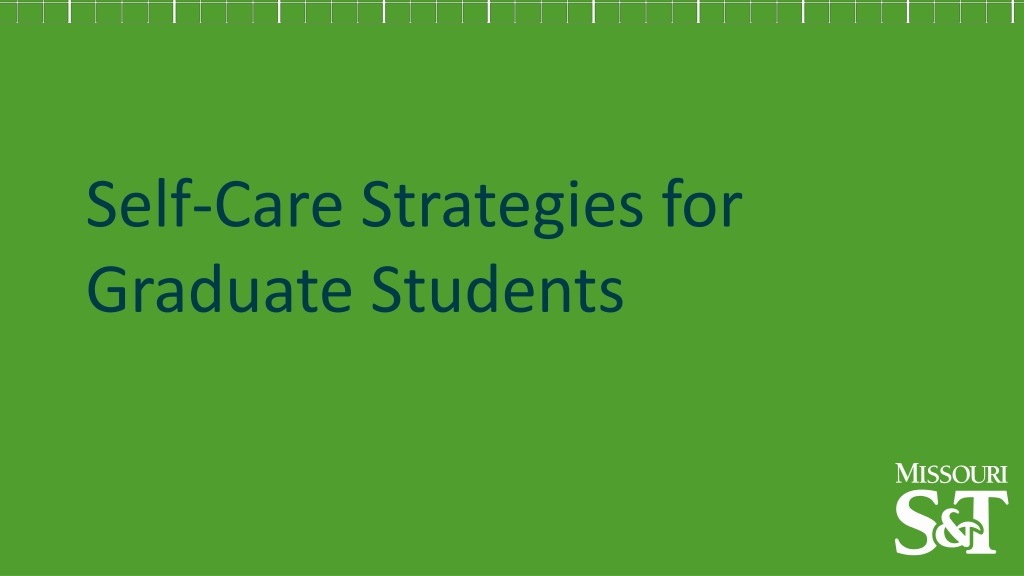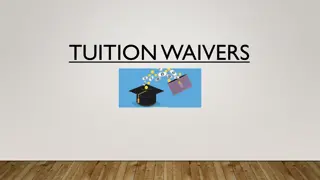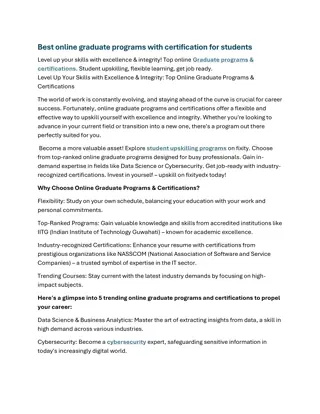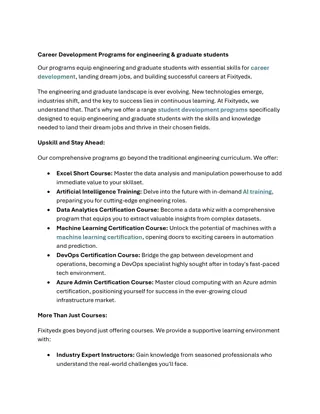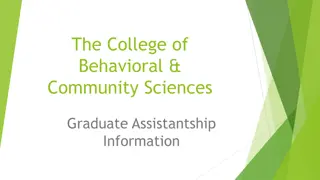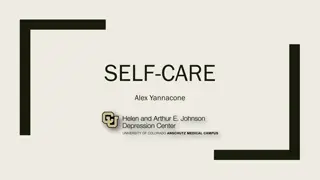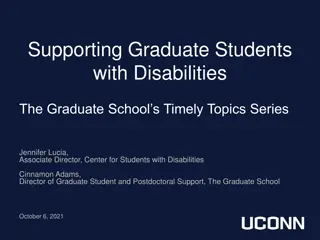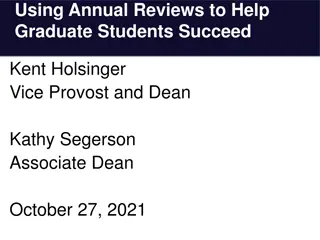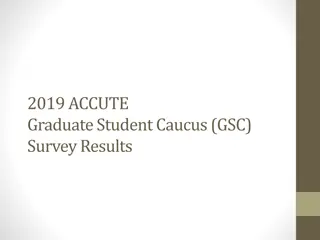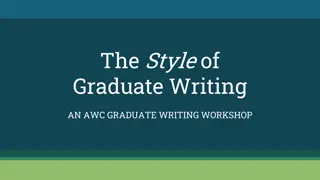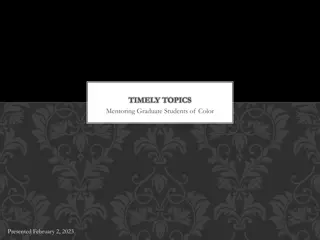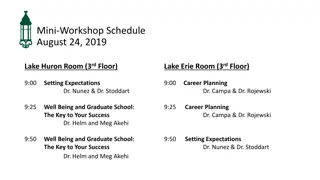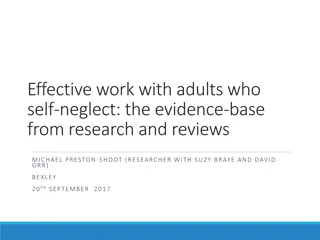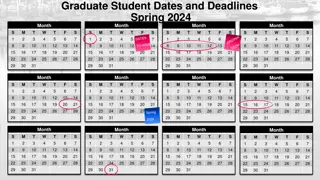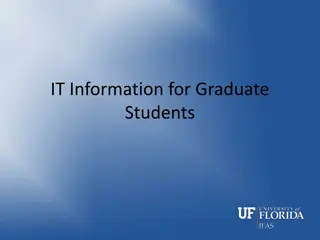Self-Care Strategies for Graduate Students
Discover essential self-care strategies for graduate students to effectively manage stress. Learn about the causes and signs of stress, explore coping mechanisms such as problem-focused and emotion-focused strategies, and find practical stress management techniques like yoga, self-massage, progressive relaxation, mental imagery, grounding, breathing exercises, and improving sleep quality. Access supportive resources on campus for additional help and guidance.
Download Presentation

Please find below an Image/Link to download the presentation.
The content on the website is provided AS IS for your information and personal use only. It may not be sold, licensed, or shared on other websites without obtaining consent from the author.If you encounter any issues during the download, it is possible that the publisher has removed the file from their server.
You are allowed to download the files provided on this website for personal or commercial use, subject to the condition that they are used lawfully. All files are the property of their respective owners.
The content on the website is provided AS IS for your information and personal use only. It may not be sold, licensed, or shared on other websites without obtaining consent from the author.
E N D
Presentation Transcript
Self-Care Strategies for Graduate Students
Stress > Body s natural reaction to any perceived demands or threats - physical, mental, or emotional - that is placed upon it
Causes of Stress >Environmental factors >Changes/Transitions >Social factors >Your thoughts >Physiological factors
What does stress feel like for you? >Emotional signs: Feelings of anxiety, anger, sadness, frustration >Behavioral signs: trouble sleeping, irritability, aggression, crying >Physical signs: nausea, indigestion, increased heart rate, perspiration, breathing changes
Managing Stress Effectively Two Types of Coping Strategies > Problem Focused reducing or eliminating stressor or the cause of the problem > Emotion Focused reducing or preventing emotional reaction, managing feelings Active versus Distractive > Active awareness of the problem and going through steps to reduce a negative outcome > Distractive ignoring the issue, or denial of the problem
Strategies to manage stress >Yoga >Self-Massage >Progressive Relaxation >Mental Imagery
Supportive Resources on Campus Care Management 107 Norwood Hall 320 W. 12th Street ucare@mst.edu 573-341-4209 Miner Wellness 203 Norwood Hall 320 W. 12th Street minerwellness@mst.edu 573-341-4225 Counseling Services 204 Norwood Hall 320 W. 12th Street counsel@mst.edu 573-341-4211 Student Health 910 W. 10th Street mstshs@mst.edu 573-341-4284
Supportive Resources on Campus > University Committee for Assistance, Response, and Evaluation (UCARE) Members of the campus community are encouraged to make a UCARE referral when they are concerned about a student, regardless of how insignificant the concern may seem. https://go.mst.edu/ucare-report/ > Well-Being Quick Reference Guide https://minerwellness.mst.edu/well-being-reference-guide/
